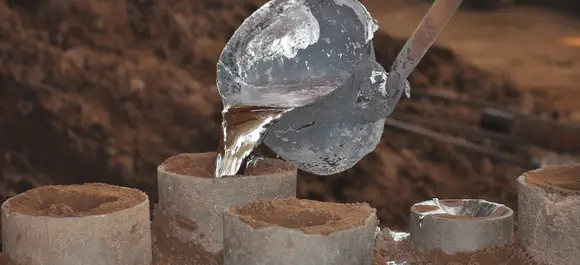Mobile:+86-311-808-126-83
Email:info@ydcastings.com
French
aluminum castings
The Importance of Aluminum Castings in Modern Manufacturing
Aluminum castings have become an essential element in various industries, including automotive, aerospace, construction, and consumer goods. The versatility, lightweight nature, and excellent mechanical properties of aluminum make it a preferred choice for manufacturing components through casting processes. This article will delve into the significance of aluminum castings, their benefits, and their applications in contemporary manufacturing.
First and foremost, aluminum castings are known for their lightweight characteristics, which significantly contribute to fuel efficiency and performance in vehicles and aircraft. For instance, the automotive industry has witnessed a robust shift towards utilizing aluminum castings to reduce the weight of vehicles, which in turn lowers fuel consumption and greenhouse gas emissions. As global environmental concerns grow, manufacturers are increasingly adopting aluminum casting techniques to promote sustainability while meeting regulatory standards.
The manufacturing process involves melting aluminum and pouring it into molds to create various shapes and forms. This process enables manufacturers to produce complex geometries that are often challenging to achieve with other materials or manufacturing techniques. The adaptability of aluminum casting allows for the creation of intricate designs, making it suitable for a wide range of applications—from engine blocks and transmission housings to structural components in buildings and aircraft.
aluminum castings

Another vital aspect of aluminum castings is their excellent corrosion resistance. Unlike many ferrous metals, aluminum naturally forms a protective oxide layer when exposed to the environment, which prevents further oxidation. This property not only extends the life of aluminum components but also makes them suitable for applications in harsh environments, such as marine and chemical processing industries. In these sectors, the durability and longevity of components are crucial, and aluminum castings provide a reliable solution.
Moreover, the thermal and electrical conductivity of aluminum enhances its use in applications that require efficient heat dissipation or electrical conductivity. For instance, aluminum castings are commonly employed in electronic housings, heat sinks, and various automotive components. This ability to conduct heat and electricity efficiently makes aluminum an excellent material choice for improving overall product performance.
In addition to these technical advantages, the economic benefits of aluminum castings cannot be overlooked. While the initial investment in aluminum casting technology may be higher compared to other processes, the long-term savings through reduced material waste, lower energy consumption during production, and diminished operational costs are significant. Furthermore, aluminum's recyclability adds to its cost-effectiveness as recycled aluminum requires only about 5% of the energy needed to produce virgin aluminum.
In conclusion, aluminum castings represent a critical component of modern manufacturing, driven by their lightweight, corrosion-resistant, and versatile nature. With applications spanning multiple industries, the significance of aluminum casting is set to grow as manufacturers continue to seek innovative solutions that meet both economic and environmental demands. As technology advances and new casting techniques emerge, the role of aluminum castings will undoubtedly expand, paving the way for future advancements in manufacturing processes and products.











